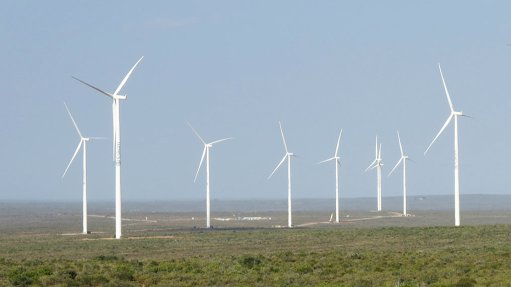The poor and miserable simply cannot be let be
South Africa, and more especially its economy, is in deep trouble. When I find myself in similar circumstances, I recall the lyrics of the Beatles song, Let It Be: “When I find myself in times of trouble, Mother Mary comes to me; Speaking words of wisdom, let it be; And in my hour of darkness she is standing right in front of me; Speaking words of wisdom, let it be; Let it be, let it be; Let it be, let it be.”
Only the South African government simply cannot leave the economy alone, and not interfere; it cannot let it be. The question is not whether it should or should not interfere, but rather how. But it should approach with caution and heed the words of Alexander Pope in his 1711 poem, An Essay on Criticism: “For fools rush in where angels fear to tread.”
So, what should be at the centre of government’s focus? I will get to that in a moment. Government states on its website: “The central economic policy goal of the South African government is to accelerate inclusive growth and create jobs. Its main fiscal objective is to ensure sustainable finances by containing the Budget deficit and stabilising public debt.” The Economic Development Department’s economic policy informs the macroeconomic policy. The department states: “In pursuit of its developmental agenda, government uses a set of policy tools such as taxation, public expenditure, subsidies, credit access and interest rate changes . . . as part of the broad levers of policy, macroeconomic policy impacts on employment, investment and economic growth, among others.” It adds: “Microeconomic policy deals with policies targeted at the development of economic sectors, firms and households. It aims to ensure the promotion of investment in the real economy, efficiency of economic institutions and productivity, thereby raising income levels and living standards.”
Is this the answer? There are two words which do not appear in these and other government documents: ‘poor’ and ‘miserable’. Consider the quote: “No society can surely be flourishing and happy, of which the far greater part of the members is poor and miserable.” This was written more than 244 years ago by the ‘the father of economics’, Adam Smith, in his book, An Inquiry into the Nature and Causes of the Wealth of Nations, popularly known simply as The Wealth of Nations.
This begs the question: Who represents South Africa’s poor? I Googled this and found no answer. The second result returned is from a 2019 Stats SA article providing insight into poverty, but not the answer. As to who speaks for South Africa’s poor, again, no answer, and the second result was a 2019 CNN story stating: “South Africa is the world’s most unequal country. 25 years of freedom have failed to bridge the divide.”
Evidently, South Africa’s poor are voiceless, unlike the unemployed, who are spoken for. What is the difference between unemployment and poverty? In essence, the first refers to a willingness to work but not being able to obtain employment, while the latter is the lack, either temporarily or permanently, of the essential means of survival, namely food, clothing, shelter, a job, schooling.
In South Africa, the plight of the poor is used to advance political agendas, instead of finding a sustainable and lasting solution for their situation.
It is government’s responsibility to honour the adage that charity begins at home. It is critical that government looks after its own poor and miserable first. But then, so too should we.
I leave you with a challenge from Proverbs 31, verses 8 and 9: “Speak out on behalf of the voiceless, and for the rights of all who are vulnerable. Speak out in order to judge with righteousness and to defend the needy and the poor.”
Article Enquiry
Email Article
Save Article
Feedback
To advertise email advertising@creamermedia.co.za or click here
Press Office
Announcements
What's On
Subscribe to improve your user experience...
Option 1 (equivalent of R125 a month):
Receive a weekly copy of Creamer Media's Engineering News & Mining Weekly magazine
(print copy for those in South Africa and e-magazine for those outside of South Africa)
Receive daily email newsletters
Access to full search results
Access archive of magazine back copies
Access to Projects in Progress
Access to ONE Research Report of your choice in PDF format
Option 2 (equivalent of R375 a month):
All benefits from Option 1
PLUS
Access to Creamer Media's Research Channel Africa for ALL Research Reports, in PDF format, on various industrial and mining sectors
including Electricity; Water; Energy Transition; Hydrogen; Roads, Rail and Ports; Coal; Gold; Platinum; Battery Metals; etc.
Already a subscriber?
Forgotten your password?
Receive weekly copy of Creamer Media's Engineering News & Mining Weekly magazine (print copy for those in South Africa and e-magazine for those outside of South Africa)
➕
Recieve daily email newsletters
➕
Access to full search results
➕
Access archive of magazine back copies
➕
Access to Projects in Progress
➕
Access to ONE Research Report of your choice in PDF format
RESEARCH CHANNEL AFRICA
R4500 (equivalent of R375 a month)
SUBSCRIBEAll benefits from Option 1
➕
Access to Creamer Media's Research Channel Africa for ALL Research Reports on various industrial and mining sectors, in PDF format, including on:
Electricity
➕
Water
➕
Energy Transition
➕
Hydrogen
➕
Roads, Rail and Ports
➕
Coal
➕
Gold
➕
Platinum
➕
Battery Metals
➕
etc.
Receive all benefits from Option 1 or Option 2 delivered to numerous people at your company
➕
Multiple User names and Passwords for simultaneous log-ins
➕
Intranet integration access to all in your organisation

















